The 10 Best Acquisitions of 2017
In a year in which the S&P 500 has performed tremendously well, mergers and acquisitions deals in the U.S. have been remarkably quiet. According to Bloomberg, only 43% of the world’s best acquisitions involved North American companies.
In fact, year-to-date through mid-November, North American M&A deals are down 35% despite Canada having a solid year when it comes to acquisitions. It seems the so-called Trump effect on the markets hasn’t translated to the mergers and acquisitions market.
At least not yet.
InvestorPlace - Stock Market News, Stock Advice & Trading Tips
There is speculation that many CEOs are waiting to see what happens with the AT&T Inc. (NYSE:T) takeover of Time Warner Inc (NYSE:TWX) before launching into any multi-billion dollar acquisitions that will face extreme scrutiny from the Justice Department.
It also might be that CEOs fear to pay too much for acquisitions at a time when big corporations are leveraged at record levels.
Whatever the reluctance resulting in lower volumes, there still have been some fascinating M&A deals in 2017.
Here are ten of the best acquisitions over $1 billion this past year.
Best Acquisitions of 2017: Amazon (AMZN) / Whole Foods
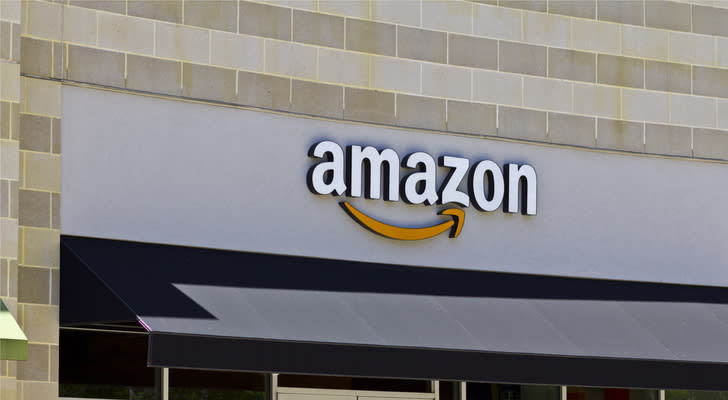
Source: Shutterstock
It might not have been the biggest deal of 2017 regarding dollars — $13.7 billion — but Amazon.com, Inc. (NASDAQ:AMZN) buying Whole Foods sure did a number on grocery stocks, which are down 16% YTD.
Kroger Co (NYSE:KR), the largest U.S.-listed grocery store chain has fared even worse, down 32% in 2017; Amazon is up 60% YTD on investor expectations it will lower food prices at Whole Foods, making the healthy grocer more attractive to the average shopper.
Whether it be the home delivery of groceries or Amazon’s move into pharmacies, investors are betting CEO Jeff Bezos has a winning plan to capture retail sales online and off.
“We’re determined to make healthy and organic food affordable for everyone,” said Jeff Wilke, CEO of Amazon Worldwide Consumer in August on the closing of the acquisition. “Everybody should be able to eat Whole Foods Market quality — we will lower prices without compromising Whole Foods Market’s long-held commitment to the highest standards.”
It’s never wise to bet against Bezos. This acquisition should be viewed as a winner by Amazon shareholders.
Best Acquisitions of 2017: Samsung Electronics (SSNLF) / Harman International

Source: Sylwia Bartyzel Via Unsplash
Back in July 2016, I called Harman International Industries Inc (NYSE:HAR), best known for its car stereos and navigation systems, one of the best “hidden values” on the market.
At the time, Harman had just delivered solid earnings with a 2.5% cut in its full-year earnings. Investors gave it a big smackdown, sending its share price down 30% on its disappointing guidance.
I argued that the punishment did not fit the crime; the 30% haircut was unwarranted providing investors with a real value play.
“At the end of the day, Harman still is going to generate $6.8 billion in revenue and $6.20 per share in earnings,” I wrote July 1, 2016. “So considering that HAR stock is trading at less than 12 times those earnings, the 30% drop in HAR stock hardly seems fair.
“This is a good company whose stock has seen many ups and downs. Hold it long-term, and you’re going to make money.”
Flash forward to November 2016.
Samsung Electronics offered to buy Harman for $112 a share or $8 billion. Completing the deal the following March, Samsung bought Harman so that it could capture a big chunk of the automotive electronics market.
I believe Samsung got a deal at $112, about $39 more than its price on July 1, 2016, when I recommended it.
Best Acquisitions of 2017: Intel (INTC) / Mobileye

Source: Intel
Intel Corporation (NASDAQ:INTC) announced in August that it had completed its tender offer for the outstanding shares of Mobileye, acquiring 84% of its shares for $63.54-per-share or $15.3 billion.
The Israel-based company’s computer vision and machine learning technology combined with Intel’s high-performance computing gives Intel a big leg up in the move to autonomous driving.
“With Mobileye, Intel emerges as a leader in creating the technology foundation that the automotive industry needs for an autonomous future,” said Intel CEO Brian Krzanich in August. “It’s an exciting engineering challenge and a huge growth opportunity for Intel. Even more exciting is the potential for autonomous cars to transform industries, improve society and save millions of lives.”
Intel estimates this market will grow to $70 billion annually by 2030, a mere 13 years from now. As Intel investors look back on this acquisition it’s likely they’ll be thrilled with the results.
Best Acquisitions of 2017: JAB Holdings / Panera Bread
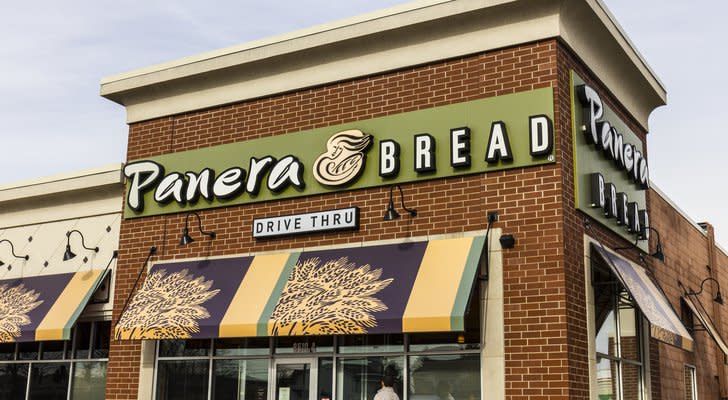
Source: Shutterstock
Currently, a private company, JAB Holdings completed its $7.5 billion acquisition of Panera Bread for $7.5 billion in July.
Panera joins a stable of coffee-related brands that include Peet’s Coffee, Keurig Green Mountain, Krispy Kreme and Jacobs Douwe Egberts. In addition to the coffee investments, JAB has ownership interests in several apparel companies and non-food-related ventures.
Buying Panera Bread gives JAB Holdings another retail vehicle to grow its coffee sales in the U.S. and other parts of the world. Panera Bread gets the resources of a much more significant company to continue its expansion plans outside the U.S.
Apparently, Starbucks Corporation (NASDAQ:SBUX) was one of the bidders for Panera, but it lost out to JAB Holdings.
It’s not hard imagining JAB taking the company public in 2018. With $30 billion in assets as of the end of December 2016, it’s a force to be reckoned with; its IPO would be very attractive to investors.
Best Acquisitions of 2017: GE (GE) / Baker Hughes (BHI)
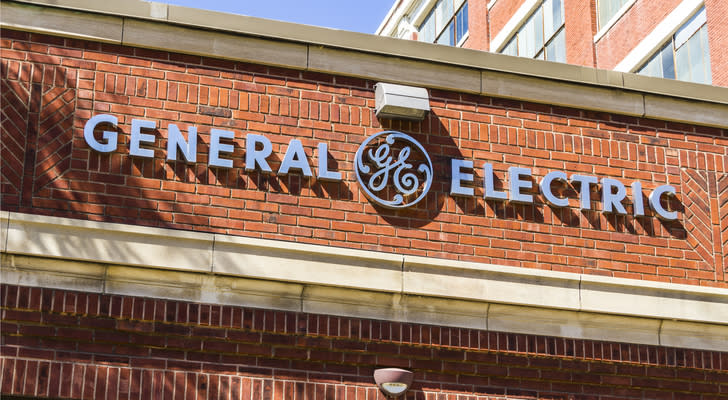
Source: Shutterstock
Given all of the bad press General Electric Company (NYSE:GE) has received in recent weeks, I thought I’d chime in on a positive aspect of its 2017 purchase of Baker Hughes A GE Co (NYSE:BHI) for approximately $23 billion.
A complex deal, GE combined its oil and gas services with Baker Hughes’ assets to create the world’s second-largest oilfield and services provider in terms of revenue behind only Schlumberger Limited. (NYSE:SLB). Operating independently of GE, GE shareholders got 62.5% of BHI with Baker Hughes shareholders getting the remainder.
The expensive move further into the oil and gas business forced new CEO John Flannery to reassess every part of its business, including reducing the number of directors from 18 to 12 — a move that will see half the current directors lose their positions and three new ones join the board.
As part of this unprecedented shakeup in its corporate structure, GE will focus on just three areas: Healthcare, Aviation and Power.
This means that once GE is allowed to sell its majority stake in BHI, it will surely do so.
Is it enough to turn around the lumbering business? Many analysts don’t think so, but at least it’s gotten the ball rolling.
Baker Hughes might not be the best acquisition of 2017, but it’s certainly one of the most significant in the history of General Electric.
Best Acquisitions of 2017: Diageo (DEO) / Casamigos
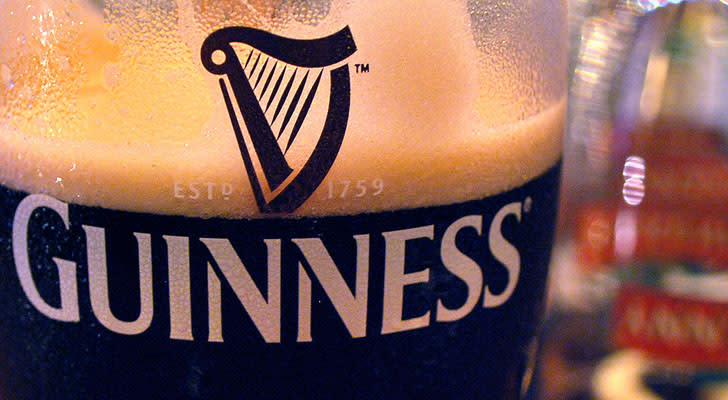
Source: Puamella via Flickr (Modified)
I couldn’t resist putting a liquor-related transaction in my list of 10 best acquisitions; this is despite the deal being only worth $1 billion. But in a year in which there weren’t too many blockbusters, Diageo plc (ADR)’s (NYSE:DEO) purchase of Casamigos — George Clooney was one of the partners — the fastest-growing super-premium tequila brand in the U.S., ranks right up there for consumer interest.
People might not know who Diageo is, but they certainly know George Clooney. Paying $700 million plus a $300-million earn-out over ten years, Clooney’s plans to slow down his acting work won’t affect his overall wealth in the future.
Seriously, Casamigos gives Diageo a fourth tequila brand to meet the rising demand for the category. Over the past 15 years, tequila has averaged 5.7% annual growth in the number of cases sold. In 2016, Casamigos sold 120,000 cases; it expects to increase that by 42% in 2017.
“We are delighted that the founders will have continued involvement and active participation in the future success of Casamigos,” the liquor giant said in a prepared statement in June announcing the deal. “This, combined with the strengths of Diageo, will ensure the continued momentum of the brand in the US as well as realizing the growth opportunity from international expansion.”
If you own Diageo, the news of this acquisition must have put a smile on your face this past summer.
Best Acquisitions of 2017: Gilead (GILD) / Kite Pharma
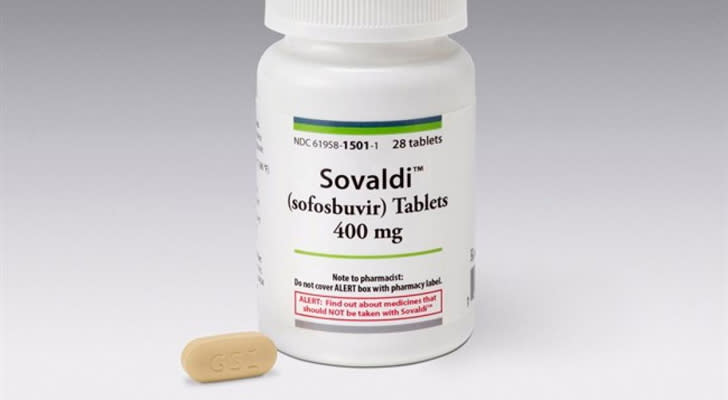
Source: Gilead Sciences
Gilead Sciences, Inc. (NASDAQ:GILD) paid $11.9 billion for Kite Pharma in October, its biggest acquisition ever. The deal gives it access to a promising cancer therapy and hopefully makes it less reliant on antiviral treatments, such as its wildly successful Sovaldi, the Hepatitis C drug it obtained when it acquired Pharmasset in 2011 for $10.8 billion.
The company is hoping it can deliver on Kite Pharma like it did Pharmasset.
“This is the one space that there are a lot of new areas to be explored and where we could be a leader as opposed to a late follower,” Gilead Chief Executive Officer John Milligan said in a telephone interview. “Ten years from now this will be a significant part of what we do and a significant part of our revenue.”
Analysts thought Gilead overpaid on Pharmasset and look how that turned out.
“Gilead said the deal will be neutral, at best, for three years,” said David Nierengarten, an analyst at Wedbush Securities. “I can’t remember any time someone got acquired and said neutral for three solid years.”
When analysts are most skeptical, I’m most bullish.
Earnings might be down in 2017, but given how well GILD stock has performed over the past 20 years — up 21% annually — I’d say its chances with Kite Pharma could be very rewarding.
Best Acquisitions of 2017: Johnson & Johnson (JNJ) / Actelion
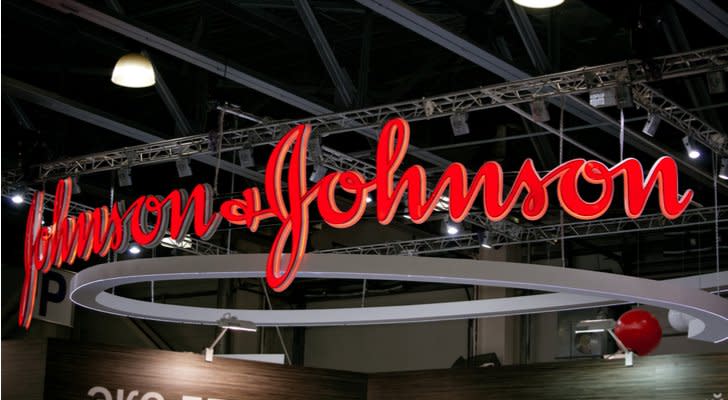
Source: Shutterstock
Johnson & Johnson (NYSE:JNJ) completed one of the year’s largest acquisitions in June buying Swiss drugmaker Actelion for $30 billion. As part of the transaction, Actelion spun-off its drug development business into a separate company, Idorsia Ltd (OTCMKTS:IDRSF), which JNJ could own as much as 22% after the conversion of a convertible note.
Actelion is a leader in the treatment of pulmonary arterial hypertension (PAH). It makes an excellent addition to the existing drugs made by JNJ subsidiary Janssen Pharmaceuticals and it will accelerate JNJ’s revenue and earnings growth.
The acquisition is accretive earnings, adding at least 35 cents to JNJ’s bottom line in the first year alone. More importantly, the acquisition helps prime the drug pipeline in the years ahead.
“We are convinced that the pharma pipeline remains robust and more meaningful contributions will kick in beyond 2017,” Joshua Jennings from Cowen & Co. wrote in a client note in October.
Anytime you can add to your roster of drugs while padding the bottom line, you’re doing well.
Even after paying $30 billion for Actelion, JNJ’s long-term debt is just 17% of its total assets, considerably lower than many of its competitors.
This might be the best of the best acquisitions in 2017.
Best Acquisitions of 2017: Alimentation Couche Card (ANCUF) / CST Brands
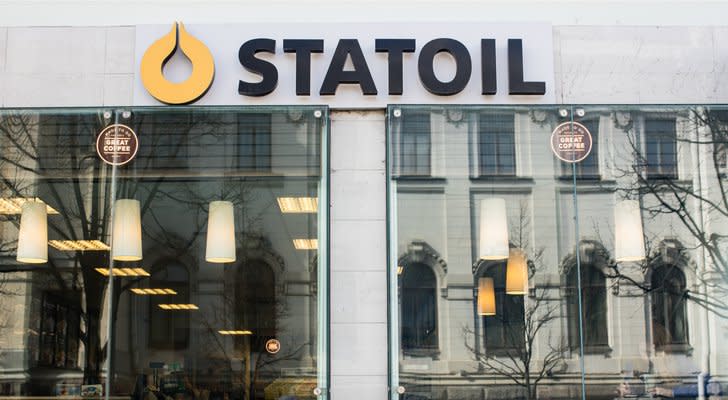
Source: Shutterstock
Whenever I can put in a plug for one of Canada’s great companies, I’ll take the opportunity to do so.
In June 2017, Alimentation Couche Tard (OTCMKTS:ANCUF) closed its acquisition of CST Brands, Inc., the fourth-largest operator of convenience stores in the U.S., for $4.4 billion. As part of its acquisition, it turned around and sold CST Brands’ Canadian operations for CAD$965 million to Parkland Fuel Corp (OTCMKTS:PKIUF), one of Canada’s largest gas station owners.
Couche Tard (hardly anybody says the Alimentation part) got what it wanted: additional convenience store locations in Texas and other parts of the southern U.S. and Parkland, based in Alberta, expanded its network all the way from the Pacific to the Atlantic.
Couche Tard’s has become the second-largest operator of convenience stores in North America, buying companies, producing big cost savings, increasing cash flow and quickly paying down the debt used to make the acquisitions in the first place.
As far as serial acquirers go, there’s not many who do it better than Couche Tard. CST Brands was an excellent acquisition.
Best Acquisitions of 2017: AT&T (T) / Time Warner (TWX)
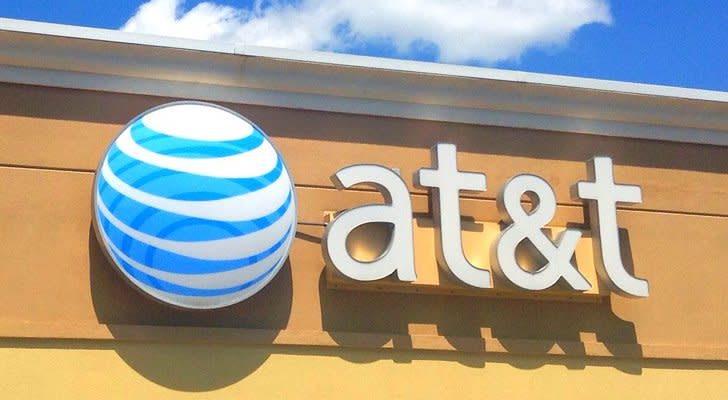
Source: Mike Mozart via Flickr
The final acquisition on my ten-best list hasn’t officially closed, and there’s still a chance it won’t get the green light from the Department of Justice. However, as acquisitions go, AT&T Inc.’s (NYSE:T) proposed $85 billion purchase of Time Warner Inc (NYSE:TWX) has to be considered the year’s best acquisition for the sole reason it’s bigger and more complicated than most every acquisition I can think of that occurred in 2017.
As of this writing, the Justice Department has just filed suit in a Washington D.C. federal court to block the deal, suggesting it violates antitrust rules because AT&T will use Time Warner programming to hurt its competitors.
AT&T, as you can imagine, disagrees with the DOJ’s take on the merger. It plans to fight the lawsuit in court.
“Today’s DOJ lawsuit is a radical and inexplicable departure from decades of antitrust precedent,” David McAtee II, AT&T’s general counsel, said in a statement. “Vertical mergers like this one are routinely approved because they benefit consumers without removing any competitor from the market. We see no legitimate reason for our merger to be treated differently.”
Ironically, the DOJ apparently asked AT&T to sell either CNN or DirecTV to obtain the merger’s approval. AT&T is unwilling to meet the DOJ’s demand.
This could get messy.
As of this writing, Will Ashworth did not hold a position in any of the aforementioned securities.
The post The 10 Best Acquisitions of 2017 appeared first on InvestorPlace.
